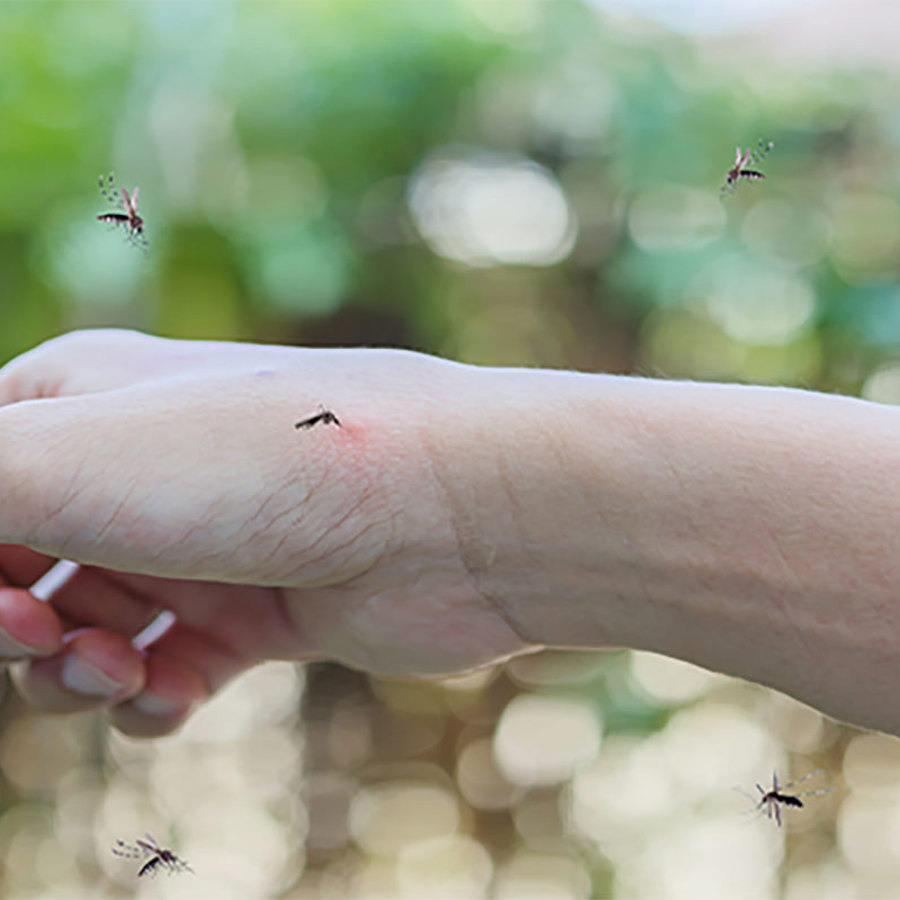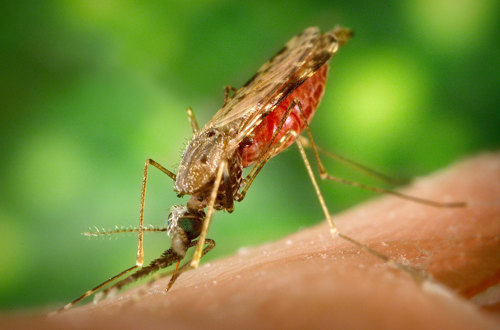
Why do mosquitoes chase me and not my friends?
January 23, 2015

- Related Topics:
- Quirky questions,
- Editor's choice,
- ABO blood type
A middle school student from California asks:
“Why do mosquitoes chase me and not my friends?”
Since you decided to Ask A Geneticist about this itchy question, you probably think that genetics plays a role in determining which people mosquitoes like best. And you’re totally right!
Scientists have discovered lots of reasons why some people are particularly tasty to mosquitoes. Many of them are influenced by genetics.
Mosquitoes are really tiny compared to humans. They have to fly very far, compared to their size, just to grab a snack.
When you think about it, it’s pretty amazing that they are able to find any humans at all! Even more amazingly, they actually know which people are tastier than others before they land. (On second thought, “annoying” may be a more appropriate word than “amazing” in this instance).

So how do they find us? Lots of different ways.
When they’re further away, mosquitoes mostly use smell to find a person. Once they get closer, they use sight to help as well. They also use temperature and humidity as guides.
Some things that attract mosquitoes to particular people are not genetic. For instance, wearing dark colors or moving around a lot can make you more noticeable to mosquitoes. That’s because you stand out against the sky better, so it’s easier for a mosquito to see you.
However, there are also many genetic reasons why some people are more attractive than others. In fact, scientists think that as much as 85% of what attracts mosquitoes to people may be genetic!
Mosquitoes Like the Way You Smell
There are a few different ways that your personal, genetically-encoded smell attracts mosquitoes. But believe it or not, they aren’t all due to your particular set of genes.
One of those ways is your HLA genes. HLA, or Human Leukocyte Antigen, genes are involved in the immune system. They can also influence how you smell. It turns out that some HLA genes make scents that mosquitoes like more than others.
Another genetic reason mosquitoes might like you more is your blood type. Mosquitoes actually prefer landing on people with Type O blood to people with Type A (Type B is somewhere in between).
The particular smell of your sweat can also attract mosquitoes. But it’s not your genes that determine that smell – it’s the genetics of the hordes of bacteria that live on your skin (yum!). Human sweat actually only has a smell after bacteria digest it. So what you’re really smelling is bacteria poo!
Different bacteria eat different parts of your sweat, making byproducts with different smells. Mosquitoes like some of these scents more than others. Some lucky people’s bacteria even produce smells that mosquitoes avoid!
Finally, the amount of CO2 you breathe out is a major attractant for mosquitoes. That means that if you’re exercising hard, you will be more attractive to mosquitoes.
This can also have a genetic basis. Some people’s genes cause a faster metabolism, so they produce more CO2 even when they’re not exercising. This is also why pregnant people get bitten more – they breathe out more CO2. (They’re also warmer).

Preventing Mosquito Bites
Other than spraying some DEET, which repels mosquitoes really well, there are a few ways to get fewer mosquito bites. Of course, changing your genes isn’t one of them.
One good thing to know about mosquito attraction is that it’s relative. So you can have some genes that make mosquitoes like you a lot, but if you stand next to an exercising, pregnant person with Type O blood and a black shirt, you’ll probably be fine. Seek these people out as friends.


Another thing you can do is to wear light colors and try to be in the wind, or use a fan. Mosquitoes have a hard time flying in even a small wind.
There’s still a lot to learn about how mosquitoes choose a host. Scientists are learning more and more about this topic, and in particular are discovering smells that mosquitoes actively avoid.
In the future, this may lead to new types of bug repellents that work even better than DEET. But for now, just try not to itch too much.

Author: Liz Freeman
When this answer was published in 2015, Liz was a Ph.D. candidate in the Department of Biology, studying carbon acquisition in algal photosynthesis in Martin Jonikas’s laboratory. She wrote this answer while participating in the Stanford at The Tech program.
 Skip Navigation
Skip Navigation
